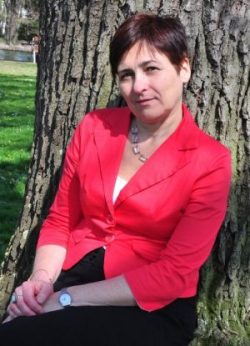Dear readers!
The focus of the last issue of Minbar was – like in previous issues – the Arab revolution. The call for change is undeniably clear. But where do we start? There are many diverse and complex problems
This issue is dedicated to some of these complex problems in the Arab world. The focus is on education, which is why we begin and end the issue with it.
The first article severely criticizes the Arab education system for what seems to be a progressive Western school system, but which apparently goes back to the dark ages upon closer inspection. Habib Abd al-Rabb Sururi (Yemen) makes no pretense of giving religion a share of the blame for the dreadful state of education.
In the last part of this issue we introduce our school project in Palestine, which was launched in 2012 in cooperation with the Ministry of Education of the Palestinian National Authority. The Fund organized a school newspaper competition and made funds available for this purpose (2 laptops, 2 digital cameras, fee budget for the support provided by two teachers and two journalists). Two schools in Tulkarm/West Bank, each with two groups of pupils, participated in the competition. The goal of the competition was to raise awareness of the pupils to the problems of society and give them the opportunity to address these problems freely and discuss them openly. This project allowed the pupils to o practice formation of opinion and independent thinking and to learn to work independently using the methods of research in libraries and the internet, thus initiating them to basic journalistic work. The project was completed in March 2013 with the awarding of the first Ibn Rushd Prize for Journalism 2013 school’s best young writers in a small ceremony.
We are pleased to now publish all four school magazines, which came as result of the competition. The report of the coordinator of the project, Nabil Bushnaq, and the assessment of the jury (including the CV) is also part of the article. A second project of this kind is planned in the future.
Muhammad al-Farhan’s article, Julub, is about the role of women as a philosopher in the history of Western culture. He discusses how difficult it was for the West and especially the Christian church to deal with intelligent women.
Three other political articles raise many questions: The lecture that Dr. Hamid Fadlalla held on the Sudan/South Sudan Conference in Hermannsburg (31 October – 02 November 2012) on Sudan conflict is an appeal to reason.
In his lecture, which was held on 19.04.2013 as one of Ibn Rushd lectures in Berlin, the Syrian writer and philosopher Sadiq Jalal al-Azm analyzes the Arab Spring in terms of political Islam, with main focus on his homeland Syria.
Equally political is the homage to ‘Abd al-Rahman al-Kawakibi (1854-1902) by Salam Kawakibi, a grandson of the great thinker, who over a century ago had warned against religious fanaticism and could be regarded as one of the first secularists in the Arab world rejecting a religious state. Kawakibi’s thoughts are extremely relevant to the current political situation as he called for a reform of religion, fighting against despotism, corruption and oppression and his unrestricted, free expression and courage . If you read the carefully compiled quotes which reflect his clear thoughts and reason, you will be saddened when you realise that they are still applicable over 100 years later, as the Arab World does not seem to have made any progress.
As usual, we also have a literary contribution: Mamdouh Farrag an-Nabi analyzes the Trilogy of Naguib Mahfouz and asks the question whether the historical novel is written for the purpose of illustrating the past or for the purpose of overcoming reality?
Finally, we want to remind you, that you are welcome to submit contributions for coming issues or make recommendations to us.
Enjoy the read!
Dr. Abier Bushnaq
Editor in Chief




